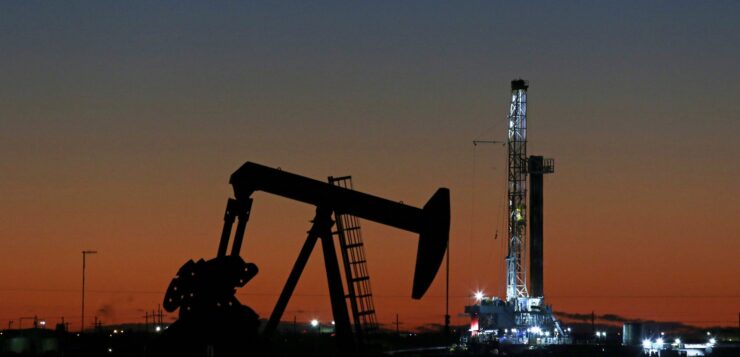Topline: Saudi Arabia and Russia have agreed to record oil production cuts, according to multiple news reports, following a weeks-long dispute that devastated the oil market amid a major demand slump caused by the coronavirus, though prices still fell on Thursday as investors weighed whether the cuts would be enough to offset the damage.
- The international Brent benchmark is down 2.7% to $32.03 per barrel after giving up steep gains earlier this afternoon.
- According to the Wall Street Journal, Saudi Arabia has agreed to cut 3.3 million barrels a day from its current production levels of 12 million barrels per day and Russia has agreed to cut 2 million barrels per day from its current production of 10.4 million barrels per day.
- A virtual meeting this afternoon included members of OPEC and other oil producing nations, known collectively as OPEC+; the Journal reports that most delegates who attended agreed to collective production cuts of 10 million barrels per day in May and June followed by cuts of 6 million barrels a day until April 2022.
- Over the last few weeks, the pressure on the oil market has boiled down to supply and demand: demand for fuel has plummeted as people around the world stopped traveling and working as a result of the coronavirus, and supply was set to skyrocket as Saudi Arabia and Russia ramped up production and cut prices.
- Last week, U.S. shale driller Whiting Petroleum WLL became the first major casualty of the crisis, filing for Chapter 11 bankruptcy protection amid the major drop in oil prices.
Crucial quote: “The supply and demand fundamentals are horrifying,” OPEC Secretary-General Mohammed Barkindo said in his opening remarks at the meeting today. Barkindo said the decline in the second quarter alone would be “close to 12 million [barrels a day]and expanding,” which is “unprecedented in modern times.”
Key background: Last month, an all-out price war between two oil-producing giants, Russia and Saudi Arabia, rocked global markets just as demand began to plummet during the coronavirus outbreak. When members of OPEC, a cartel of 13 of the world’s major oil-producing countries, and Russia met in Vienna to discuss industry-wide supply cuts aimed at alleviating the dramatic drop in demand, Russia did not agree to the cuts, leading to speculation that it acted intentionally in order to drive prices down, gain market share and punish the growing American fracking industry. In response, Saudi Arabia’s state-owned oil company, Saudi Aramco, announced that it would ramp up production to more than 10 million barrels a day in April and slash its prices in order to undercut Russia and other competitors. Markets took a major hit, with prices plummeting by more than 30% at one point to lows not seen since the Gulf War in the 1990s.
Surprising fact: One unexpected consequence of the twin supply and demand shocks? Storage. As production ramps up and demand continues to plummet, the world is running out of places to put oil. “Although 10 million bpd will help the market on the short term to not fill up storage, it is a disappointing development for many, who still realize the size of the oil oversupply,” said Bjornar Tonhaugen, Rystad Energy’s head of oil markets.





